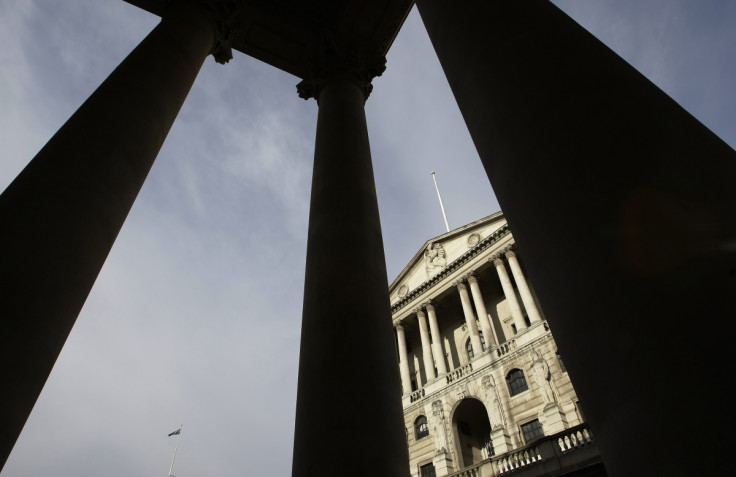UK Interest Rates Hike: The Bank of England's Endless Corridor

What the Bank of England is going through at the moment is kind of like that nightmare people have where they find themselves running down an endless corridor. At the end of policymakers' corridor is an increase in interest rates that they can't quite reach.
Interest rates will need to rise soon as the economic recovery fortifies. Low interest rates during an economic boom can mean credit bubbles, as people take on greater debt than they can afford to repay in the long-term. Then when rates do rise, the bubbles go pop with a wave of defaults.
The headline economic recovery in the UK will see around 3.5% GDP growth in 2014, according to the central bank's forecast, having already surpassed its pre-crisis peak. And the employment rate is hitting record highs, while the unemployment rate drops like a stone.
But the floor keeps rolling underneath the central bank's feet because of the counterintuitive data.
Inflation is falling, having slowed to 1.6% in July in the seventh consecutive month it has been below the Bank of England's 2% target, despite ultra-loose monetary policy. Bank lending to businesses is dropping evermore and consumer credit levels are subdued.
Wage growth is at its slowest pace on record and tumbling in real terms, while productivity is stuck below its pre-financial crisis peak. Exports are also very weak, in part due to the global economic difficulties and in part due to the strength of the pound.
The risks of an early rates hike shouldn't be dismissed by those hankering for a rise. While incomes are so weak, because of poor pay growth and welfare cuts to name but two knocks to household finances, more money funnelled to debt repayments means less spent out in the economy. Household consumption has been a key driver of the economic recovery as people wore down their savings.
And for those households who have taken on excessive debt while interest rates have been low, there is a dangerous risk of default. This could send an unwelcome ripple of losses through the financial system, though the Bank of England said it will only raise rates gradually in order to insure against any such shocks.
Household debt in the UK amounts to around 135% of income, a rate that's rising as higher house prices mean bigger mortgages. It is one of the highest in Europe. Before the financial crisis it peaked at 165%.
So what does this all mean for interest rates? Well the Bank of England said it will only hike rates when wage growth and productivity accelerate, with the former expected to follow the latter. It reckons there is spare capacity in the labour market – unused potential productivity – worth around 1% of GDP. Until that spare capacity is used up, it doesn't want to lift rates.
Investec Economics said falling inflation should buy the central bank some time on the timing of any increase to its 0.5% base rate, an all-time-low. And the Centre of Economics and Business Research (CEBR) said policymakers have room to breathe.
The point of holding down interest rates for all this time was to support lending to the real economy by keeping the cost of credit cheap. This has worked for mortgages, but not for bank lending. But the recent tightening of the mortgage market by the Financial Conduct Authority (FCA) and the Bank of England should address any riskier lending. Moreover, mortgage approval levels are still well below their pre-crisis norms.
So mortgage market restrictions, below target inflation and falling business lending mean the Bank of England has little to fear at the moment from holding off of a hike in interest rates. And hold off it must until it is sure the recovery can cope.
The worst thing it could do is act too early and kill it off. This may mean a rates rise coming later than the early 2015 that markets currently expect.
© Copyright IBTimes 2025. All rights reserved.






















